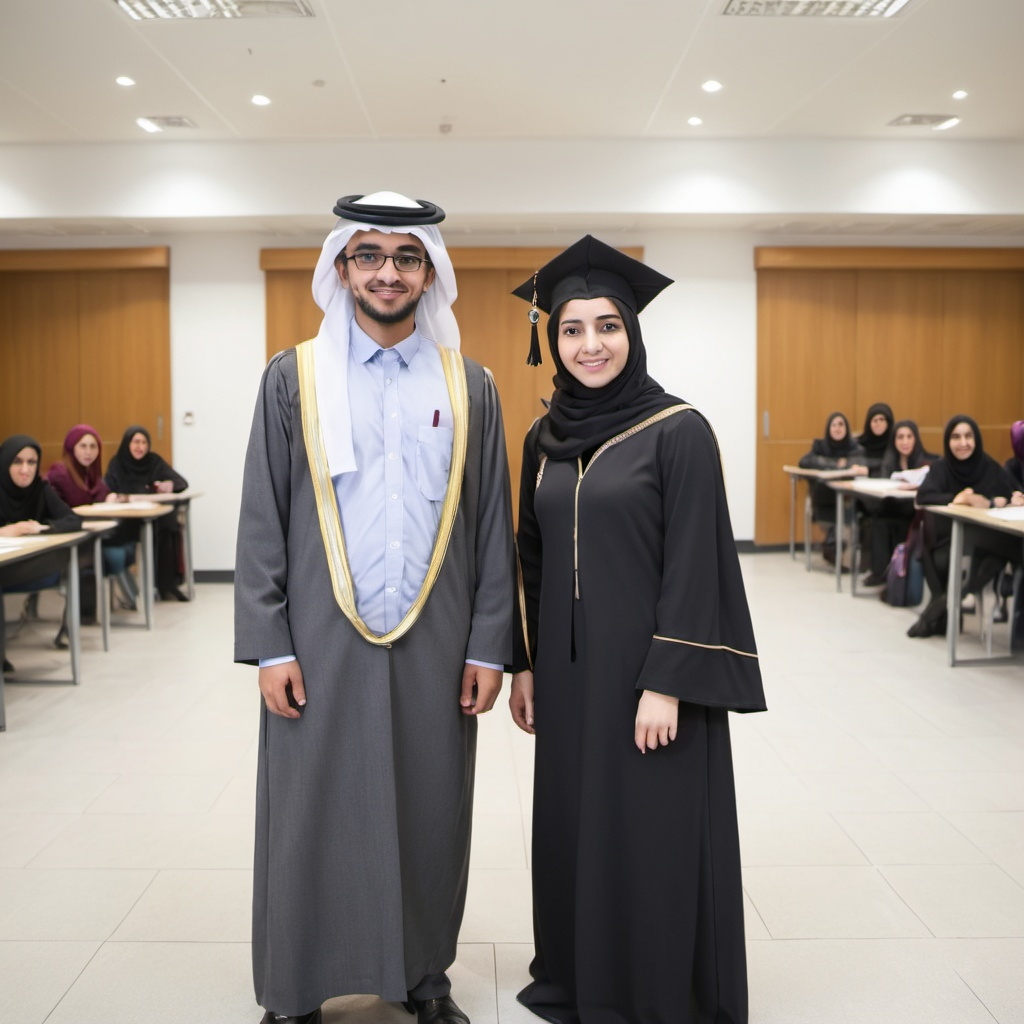To improve the scholarship process for Qatari students in the UK, several strategies could be implemented to ensure better access, efficiency, and support. Here are some suggestions:
1. Streamline the Application Process
- Centralized Portal: Create a centralized online portal where students can access all available scholarships, apply, and track their applications. This portal can include detailed information on eligibility, deadlines, and required documentation.
- Simplified Application Forms: Reduce the complexity of application forms, making them more user-friendly and accessible, especially for students who may not be familiar with the UK education system.
- Automated Eligibility Check: Implement a feature that automatically checks a student’s eligibility for multiple scholarships, reducing the time spent on researching individual opportunities.
2. Enhance Awareness and Outreach
- Partnerships with Schools and Universities: Work closely with schools, universities, and educational agencies in Qatar to ensure that students are aware of the available scholarships and the application process.
- Workshops and Seminars: Organize workshops and informational sessions for students and their families to guide them through the scholarship process, including tips on writing personal statements and preparing for interviews.
- Online Resources: Develop online resources such as video tutorials, FAQs, and blogs that provide insights into studying in the UK, scholarship opportunities, and the application process.
3. Tailored Support for Students
- Mentorship Programs: Establish mentorship programs where current or former scholarship recipients guide new applicants through the process, offering advice and support.
- Pre-Departure Support: Provide pre-departure orientation sessions covering important aspects such as visa applications, accommodation options, and cultural adaptation.
- Ongoing Support: Offer ongoing support for scholarship recipients once they are in the UK, including academic counseling, mental health services, and networking opportunities.
4. Collaborate with UK Institutions
- Negotiated Scholarships: Work with UK universities to create scholarship programs specifically for Qatari students, potentially offering reduced fees or additional financial support.
- Cultural Integration Programs: Collaborate with UK institutions to develop programs that help Qatari students integrate into the local culture, while also maintaining connections to their heritage.
5. Feedback and Continuous Improvement
- Regular Surveys: Conduct regular surveys among applicants and current scholarship holders to gather feedback on the application process, challenges faced, and areas for improvement.
- Scholarship Review Committee: Establish a review committee that includes representatives from educational institutions, government bodies, and former scholarship recipients to continuously assess and improve the scholarship process.
6. Increase Funding and Scholarships
- Expand Funding Sources: Explore additional funding sources, such as partnerships with private companies, to increase the number and value of scholarships available to Qatari students.
- Tiered Scholarships: Introduce tiered scholarships that cater to different levels of academic achievement and financial need, ensuring a wider range of students can benefit.
7. Transparency and Fairness
- Clear Selection Criteria: Ensure that the selection criteria for scholarships are transparent and clearly communicated to all applicants.
- Impartial Review Process: Implement an impartial review process with diverse reviewers to ensure fairness and reduce biases in scholarship awards.
8. Post-Scholarship Opportunities
- Alumni Networks: Develop strong alumni networks to help graduates connect with potential employers, both in the UK and Qatar.
- Career Support: Provide career counseling and job placement services for scholarship recipients after they graduate, helping them transition smoothly into the workforce.
By implementing these strategies, the scholarship process for Qatari students in the UK can become more efficient, accessible, and supportive, ultimately enabling more students to benefit from educational opportunities abroad.
4o



